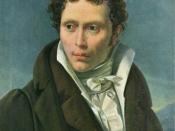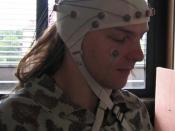The statement above is an unfair and unjust statement asking if just because the society of today is amoral that life itself is not just meaningless but tiresome too; though the statement makes no sense as it contradicts itself. If the society of today has a "dog-eat-dog" mentality then it has to have meaning. In order to behave in this way there must be something to gain and therefore life has purpose, meaning. Due to this life may be tiresome but certainly not meaningless in a dog eat dog world.
Yet morality is not defined to the extent of right and wrong; the same for immorality and amorality. Morality is a human perceptional construct:
"One man's morals are another man's bribes" A. Rand.
Morality is simply what people think or perceive as being a differentiator of what is right and what is wrong. Amorality can be considered the middle ground.
A definition for being amoral is not caring what other people think of you. Just because people are amoral doesn't mean they don't have morals; people can be morally true to themselves and not to general society. This is because to describe something in moral terms a person must have something to compare it to. So this means that what is generally considered moral is what the majority of the population thinks is moral:
"Morality is a discrimination or Prejudice" Nietzsche
This is how the current laws of today have come to be, though in today's modern world the concept of morality has become corrupt as people no longer decide their morals on personal beliefs but from what the laws say; morality creates laws and then laws mould morality. In the play of Macbeth, Macbeth himself is shown as being immoral but this is only because he is the minority. If the majority of other characters did the same as him he wouldn't be perceived as badly as he is. Macbeth's fictional world isn't a dog eat world though it is from Macbeth's point of view; but his world is a biased alteration of the real world as morality always prevailing was a theme of the play.
"Morality is as you find it" R. Burrette
The main reason for Macbeth's downfall was that he wasn't strong enough to prevent himself being corrupted by his own power. Like in reality once an individual has tasted power and given an opportunity to get more they will desire more; it is human nature. It is also human nature not to be selfless. A common belief that every person in this world, in all existence, consciously or subconsciously, is what goes around comes around. As in nature with "Equivalent Exchange" nothing is for free; whether your religious or not nobody ever does something without expecting, getting or wanting something in return. A person believes in an afterlife such as heaven will attempt to lead a good life in order to obtain a place there. All their good deeds are merely an attempt to buy their way into heaven. A person who is not religious but believes consciously what goes around comes around will only commit their goods deeds in hope that someone one day might return them; that if they were ever in need they would be help. A person who says that they're selfless and commits a good deed subconsciously just wants the satisfaction of knowing they did what they did. In Macbeth's world his murder is shown as what was right restoring balance and they who contributed to his death were being selfless. They were not. The reason they did what they did was because they wanted change and they got it. They wanted a better life for themselves or they wanted revenge. In the end they got what they wanted.
"Human kind cannot gain anything without first giving something in return,
To obtain, something of equal value must be lost"
The first law of Equivalent Exchange





